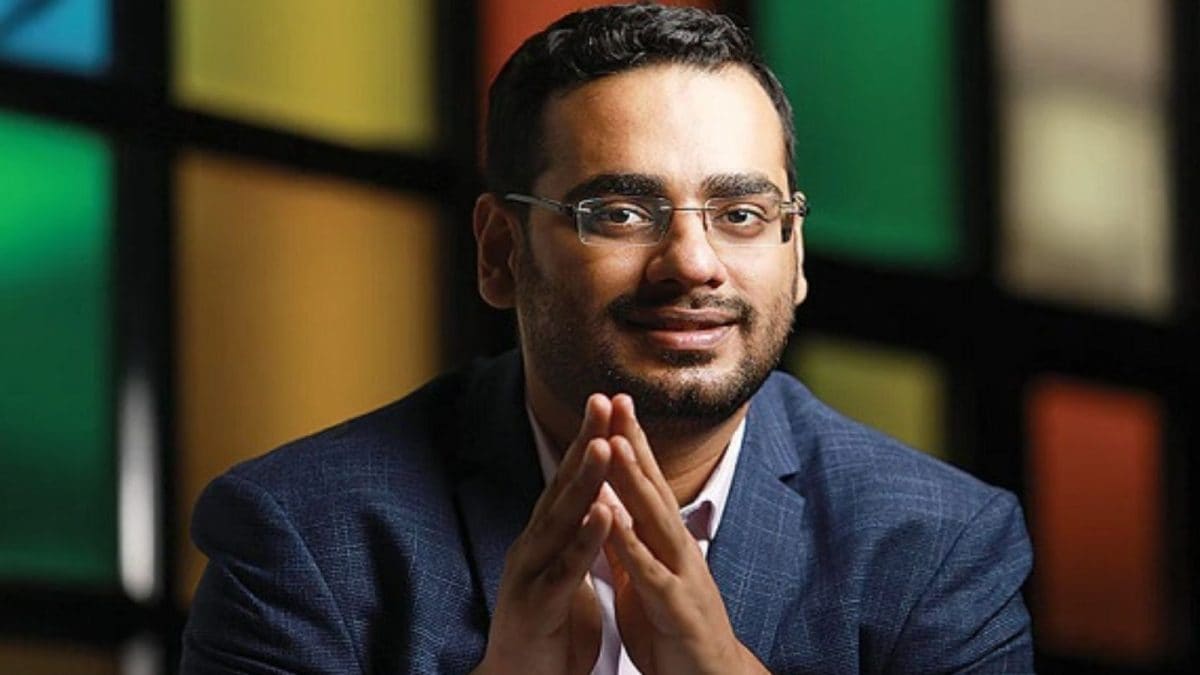Business
Car headlights to be reviewed after drivers complain of being ‘blinded’ at night

Katy Austin,Transport correspondent and
Lucy Hooker,Business Reporter
 EPA
EPACriticism from drivers over the dazzle from oncoming headlights has prompted the government to take a closer look at the design of cars and headlamps on UK roads.
Drivers say LED headlamps, which are increasingly common in new vehicles, are causing them problems and making it harder to drive at night
Research into the issue on behalf of the Department for Transport (DfT) has still not been published, but the BBC has learned that the government now plans to launch a new assessment of the causes and remedies.
New measures will be included in the government’s upcoming Road Safety Strategy, reflecting what is becoming an increasingly fraught issue for road users.
Both Ruth Goldsworthy and Sally Burt say bright headlights make it harder for them to get to their weekly SO Sound choir meetings in Totton, in Hampshire.
“Some of the lights are so bright you are blinded by them, for seconds,” says Ruth.
The beam from LED headlights is whiter, more focused and brighter than the more diffuse light from halogen lamps fitted in older cars.
“I’m not sure where to look, I look into the gutter,” says Sally. They are both relieved if someone else offers to drive.
Evening driving becomes a bigger problem as the winter evenings draw in, and especially after the clocks change, which means more people are driving in the dark.
The problem is worse for older people, whose eyes take around nine seconds to recover from glare, compared to one second for a 16-year-old, according to road safety consultant, Rob Heard.
“In severe cases, we might need to stop until our sight can recuperate,” he said.
A survey from the RAC motoring organisation found that more than a third of drivers were nervous about getting behind the wheel as the evenings get darker. Three quarters of respondents said driving was getting more difficult due to brighter lights.

The RAC’s senior policy officer, Rod Dennis, said so far little progress has been made on tackling glare, with regulations governing headlights dating back to 1989.
A Department for Transport spokesperson said: “We know headlight glare is frustrating for many drivers, especially as the evenings get darker.”
What to do in the face of brighter headlamps:
- Ensure your windscreen is clean
- Wear glasses and keep them clean
- Avoid looking straight ahead, instead focus on the edge of the road
- Do not wear night sunglasses sold for night-driving, as they reduce overall light and won’t reduce glare.
Source: College of Optometrists
New research
The results of last winter’s government commissioned research into the “causes and impact of glare” have been delayed since the summer but are now expected in the next few weeks, the DfT said.
They will inform the upcoming Road Safety Strategy, which is also expected to tighten rules on drink-driving and eye-sight tests for older drivers.
The BBC understands the government is commissioning new research into the role of vehicle design in causing glare, and possible solutions, which will feed into international discussion of the issue.
 Getty Images
Getty ImagesOne already well-understood source of glare is drivers retrofitting their vehicles, replacing old halogen bulbs with LEDs.
The housing for halogen bulbs is not compatible with LED bulbs, and a retrofitted car will not pass its annual MOT check-up.
As part of the government’s new approach the Driver and Vehicle Standards Agency has “stepped up surveillance” to stop the sale of illegal retrofit headlamp bulbs, the DfT said.
Seeing better
Cars sold with LED lights can improve road safety, Thomas Broberg, senior adviser for safety at Volvo told the BBC.
“Headlights have become brighter over the years to help drivers see better,” he said.
However, avoiding dazzle was “equally important”, he said.
“I would say poor aiming of the headlights and also the road shape are the major factors for glare,” he said.
For larger vehicles, such as SUVs, where lamps are higher off the ground, there is a requirement for the beam to point more sharply downwards, to protect oncoming drivers. But the angle can be affected by how many passengers it is carrying.
Some new cars with “adaptive features” adjust the lamps automatically if there is a change in load, but cars without that will need manual adjusting, Mr Broberg said.
Some new cars also have automatic headlamp dipping, which lowers the lights when an oncoming vehicle is detected.
 Getty Images/Stephen Robinson Pictures
Getty Images/Stephen Robinson PicturesHowever, Daniel Harriman-McCartney, clinical advisor at the College of Optometrists, said automatic dimming features can be “slow to kick in”.
“If it only works when the car is closer than it needs to be, or doesn’t work for cyclists, that can be a problem,” he said.
He is seeing an increasing number of patients concerned about headlamp glare, he added.
Dazzling headlights are cited as a factor in around 250 accidents a year, but there is no evidence that brighter lights are causing more collisions than previously, the RAC concedes.
Instead, worried drivers may simply be “taking the risk off the road” by not driving at night, with a big social impact, the RAC’s Mr Dennis warned.
He would like to see action that “strikes a balance”.
“We don’t want to go back to worse headlights. It is about what is bright enough.”
Business
New Income Tax Act 2025 to come into effect from April 1, key reliefs announced in Budget 2026

New Delhi: Finance Minister Nirmala Sitharaman on Sunday said that the Income Tax Act 2025 will come into effect from April 1, 2026, and the I-T forms have been redesigned such that ordinary citizens can comply without difficulty for ease of living.
The new measures include exemption on insurance interest awards, nil deduction certificates for small taxpayers, and extension of the ITR filing deadline for non-audit cases to August 31.
Individuals with ITR 1 and ITR 2 will continue to file I-T returns till July 31.
“In July 2024, I announced a comprehensive review of the Income Tax Act 1961. This was completed in record time, and the Income Tax Act 2025 will come into effect from April 1, 2026. The forms have been redesigned such that ordinary citizens can comply without difficulty, for) ease of living,” she said while presenting the Budget 2026-27
In a move that directly eases cash-flow pressure on individuals making overseas payments, the Union Budget announced lower tax collection at source across key categories.
“I propose to reduce the TCS rate on the sale of overseas tour programme packages from the current 5 per cent and 20 per cent to 2 per cent without any stipulation of amount. I propose to reduce the TCS rate for pursuing education and for medical purposes from 5 per cent to 2 per cent,” said Sitharaman.
She clarified withholding on services, adding that “supply of manpower services is proposed to be specifically brought within the ambit of payment contractors for the purpose of TDS to avoid ambiguity”.
“Thus, TDS on these services will be at the rate of either 1 per cent or 2 per cent only,” she mentioned during her Budget speech.
The Budget also proposes a tax holiday for foreign cloud companies using data centres in India till 2047.
Business
Budget 2026 Live Updates: TCS On Overseas Tour Packages Slashed To 2%; TDS On Education LRS Eased

Union Budget 2026 Live Updates: Union Budget 2026 Live Updates: Finance Minister Nirmala Sitharaman is presenting the Union Budget 2026-27 in Parliament, her record ninth budget speech. During her Budget Speech, the FM will detail budgetary allocations and revenue projections for the upcoming financial year 2026-27. Sitharaman is notably dressed in a Kanjeevaram Silk saree, a nod to the traditional weaving sector in poll-bound Tamil Nadu.
The budget comes at a time when there is geopolitical turmoil, economic volatility and trade war. Different sectors are looking to get some support with new measures and relaxations ahead of the budget, especially export-oriented industries, which have borne the brunt of the higher US tariffs being imposed last year by the Trump administration.
On January 29, 2026, Sitharaman tabled the Economic Survey 2025-26, a comprehensive snapshot of the country’s macro-economic situation, in Parliament, setting the stage for the budget and showing the government’s roadmap. The survey projected that India’s economy is expected to grow 6.8%-7.2% in FY27, underscoring resilience even as global economic uncertainty persists.
Budget 2026 Expectations
Expectations across key sectors are taking shape as stakeholders look to the Budget for support that sustains growth, strengthens jobs and eases financial pressures:
Taxpayers & Households: Many taxpayers want practical improvements to the income tax structure that preserve simplicity while supporting long-term financial planning — including broader deductions for home loan interest and diversified retirement savings options.
New Tax Regime vs Old Tax Regime | New Income Tax Rules | Income Tax 2026
Businesses & Industry: With industrial output and investment showing resilience, firms are looking for policies that bolster capital formation, ease compliance, and expand infrastructure spending — especially in manufacturing and technology-driven sectors that promise jobs and exports.
Startups & Innovation: The startup ecosystem expects incentives around employee stock options and capital access, along with regulatory tweaks that encourage risk capital and talent retention without increasing compliance burdens.
Also See: Stock Market Updates Today
The Budget speech will be broadcast live here and on all other news channels. You can also catch all the updates about Budget 2026 on News18.com. News18 will provide detailed live blog updates on the Budget speech, and political, industry, and market reactions.
We are providing a full, detailed coverage of the union budget 2026 here, with a lot of insights, experts’ views and analyses. Stay tuned with us to get latest updates.
Also Read: Budget 2026 Live Streaming
Here are the Live Updates of Union Budget 2026:
Business
Budget 2026: Cabinet gives green signal to Union Budget 2026–27

New Delhi: The Cabinet on Sunday approved the Union Budget 2026-27 during a meeting in Parliament chaired by Prime Minister Narendra Modi. A meeting of the Union Cabinet was held at Sansad Bhawan at 10 a.m., and after the Cabinet’s approval, Finance Minister Nirmala Sitharaman proceeded to Parliament to present the Budget.
Earlier, FM Sitharaman met President Droupadi Murmu and offered her a copy of the digital budget. The President also offered ‘dahi-cheeni’ (curd and sugar) to Sitharaman when she arrived at the Rashtrapati Bhavan. The Finance Minister was seen carrying her trademark ‘bahi-khata’, a tablet wrapped in a red-coloured cloth bearing a golden-coloured national emblem on it.
Minister of State for Finance Pankaj Chaudhary, Chief Economic Advisor Dr V. Anantha Nageswaran, Central Board of Direct Taxes (CBDT) Chairman Ravi Agrawal and other officials were seen accompanying the Finance Minister. Sitharaman was set to present her ninth consecutive Union Budget in the Lok Sabha. In 2021, she switched to using a digital tablet to carry the Budget papers, further promoting a modern and eco-friendly approach.
The ‘bahi-khata’ is a red pouch that holds the digital tablet containing the Budget documents. This year, Sitharaman opted for a deep maroon Kanjeevaram saree from Tamil Nadu. The saree featured a deep maroon base with a contrasting border and subtle gold detailing, paired with a yellow blouse.
The Budget is likely to strike a deft balance of sustaining growth momentum and maintaining fiscal consolidation. It also needs to address near-term challenges emanating from unprecedented geopolitical flux, said economists. According to economists, the budget is likely to focus more on capital expenditure, especially in sectors deemed to be strategically important owing to prevailing geopolitical compulsions.
While the FY26 Budget was more tilted towards stimulating middle-class consumption with tax reliefs, the FY27 Budget’s approach to stimulating consumption will be selective, they added.
-

 Business1 week ago
Business1 week agoSuccess Story: This IITian Failed 17 Times Before Building A ₹40,000 Crore Giant
-

 Fashion1 week ago
Fashion1 week agoSouth Korea tilts sourcing towards China as apparel imports shift
-

 Sports5 days ago
Sports5 days agoPSL 11: Local players’ category renewals unveiled ahead of auction
-

 Sports1 week ago
Sports1 week agoWanted Olympian-turned-fugitive Ryan Wedding in custody, sources say
-

 Tech1 week ago
Tech1 week agoStrap One of Our Favorite Action Cameras to Your Helmet or a Floaty
-

 Entertainment1 week ago
Entertainment1 week agoThree dead after suicide blast targets peace committee leader’s home in DI Khan
-

 Tech1 week ago
Tech1 week agoThis Mega Snowstorm Will Be a Test for the US Supply Chain
-

 Sports1 week ago
Sports1 week agoStorylines shaping the 2025-26 men’s college basketball season







